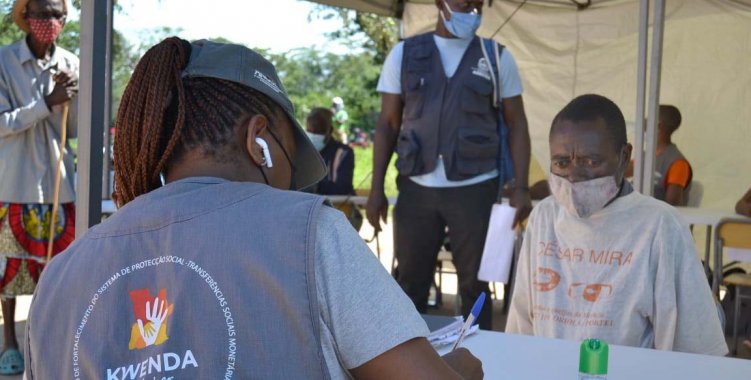The balance of the Kwenda Social Protection System Strengthening Project and perspectives for 2022 was presented by the Minister of State for the Social Area, Carolina Cerqueira, who announced the objective of institutionalizing Kwenda, "so that it becomes a true social protection program in the country and not be limited to the 2023 deadline".
"So that in the future we can think in the medium and long term, that this protection continues to benefit families, especially the most vulnerable and those who need an incentive to start a productive activity", said the minister, stressing that the matter is being discussed. be approached by technical groups to advance at an institutional level with this proposal.
"We want to take this issue to the Economic Commission of the Council of Ministers, because it represents an increase in the amount that Angola makes available for the program and also new negotiations with the World Bank to find a new platform for understanding", she added.
The program has a budget of US$420 million, of which US$320 million is provided by the World Bank, and is expected to reach 1.6 million families by 2023.
For now, around US$23 million have been allocated to households and, according to Carolina Cerqueira, Kwenda is today the main program of direct support to needy families in 5,102 villages, in 35 municipalities, of the 18 provinces, in which it is located. under implementation.
The program aims to benefit 1.608 million families, by 2023, with a monthly income of 8,500 kwanzas, with more than 500,000 households currently registered, which corresponds to more than 1.5 million people registered in the database. .
Since the start of the program, 314,000 cash transfers have been made, of which 59.1 percent are women.
In addition to the cash transfer component, the program also provides for productive inclusion, currently benefiting close to 17,000 people in the fields of agriculture, livestock, fisheries, handicrafts, sewing, motorcycle taxis and other activities.
Carolina Cerqueira, also coordinator of the inter-ministerial commission, also highlighted the fact that the program is enabling the empowerment of young cadres at all levels, especially in rural and urban peripheries.
"Allowing them to perform socially useful work, they increase proximity and a direct approach with the recipients of the program, creating an environment of harmonious coexistence and appreciation of people, knowing and identifying their needs, concerns and desires in a dynamic intergenerational relationship. strengthening social solidarity", he said.
18 months ago, when Kwenda was launched, the pandemic “was at its peak”, continued Carolina Cerqueira, stressing that the situation affected families a lot, and this program represents “the social recovery of families”.
"The recovery of life, social stability, hope and above all the resilience of the new challenges we have for the future, because the disease is still in the air, the virus continues to bring unpredictable consequences and through Kwenda we will associate social protection with protection people's health," he said.
Kwenda social program distributed 23 million dollars to 314 thousand families
The Kwenda social protection program, started in 2020, aimed at the most vulnerable households, allocated US$23 million and carried out 314,000 cash transfers, with around 60 percent of the beneficiaries being women.







